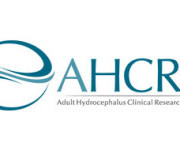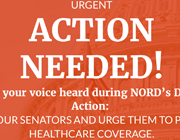Opportunity to Contact Your Senators on Health Care Reform
The U.S. Senate has deferred action on its healthcare reform proposal (also known as the Better Care Reconciliation Act of 2017 or BCRA) until after the July 4th recess, at the earliest. Many senators (as well as representatives) will be in their states/district during some or all of the recess conducting office hours, town halls and other public meetings. These events provide members of the Hydrocephalus community with an important opportunity to speak with their legislators about this very important and personal legislation.
GOP Senate bill released Thursday, June 22
Last Thursday, the Senate GOP released its “Discussion Draft” Better Care Reconciliation Act of 2017. The non-partisan Congressional Budget Office (CBO) released its analysis of the bill this week, documenting the substantial changes to existing law including significant changes that could impact the Hydrocephalus community such as significant cuts in the Medicaid program.
WHAT’S IN THE BILL?
The BCRA is an amendment to the Affordable Care Act (ACA) that will retain current law’s reliance on the private insurance market while significantly decreasing financial assistance for the purchase of insurance coverage . The discussion draft would eliminate the employer and individual mandate to purchase insurance, repeal many tax increases of the ACA and reduce the expansion of Medicaid that serves lower-income, disabled and elderly Americans.
As with the recently passed House health bill, states would be allowed to offer policies that provide less coverage than required by current law.
Additionally, there is no provision within the BCRA that requires individuals to obtain or retain health insurance.
Click here to see how the ACA, American Health Care Act (AHCA or H.R. 1628), and the BCRA compare.
WHO WILL BE IMPACTED?
As the CBO concludes, the BCRA, like the AHCA, would save considerable federal dollars over the coming years, primarily by reducing subsidies for the purchase of insurance coverage and by reducing Medicaid coverage. Areas of concern being voiced by some Senators center around access to affordable healthcare, particularly for at-risk populations including low-income families and seniors. Affordability is not only a function of monthly payments for coverage, but also deductibles as well as out-of-pocket costs.
After a thorough examination of the BCRA, the CBO estimates that 22 million Americans will lose health insurance coverage by 2026 compared to current law. A disproportionate number of those affected will be impacted by reductions in Medicaid funding, a program serving low-income individuals and families.
The bill will institute per capita caps and optional block grants that will leave many adults with rare diseases and health conditions, including hydrocephalus, without the financial assistance of Medicaid (however, disabled children are exempt). The BCRA would phase out Medicaid expansion leaving long-term coverage for people with diseases and health conditions in those expansion states without insurance. The CBO estimates that Medicaid will be cut by $772 billion over the next 10 years.
The BCRA will cut many subsidies that currently make healthcare affordable for many individuals – causing premiums to rise by possibly 20% next year alone. In addition, with the removal of annual and lifetime spending caps, insurance plans can remove limits on how much an individual pays in a year or their lifetime, with no limit on how high co-pays or deductibles can go. This will hit individuals with pre-existing conditions like hydrocephalus disproportionally. Older Americans will be hit the hardest. Under current law, older Americans pay between 6% to 9.5% of their income. But under the proposed bill they would pay 8.3% to 16.2%. If seniors make over 350 percent of the poverty line, they will now be expected to pay full price for coverage.
The Kaiser Family Foundation has created a Health Insurance Marketplace Calculator where you can insert in your personal data to see how this will directly affect you and your family.
WHERE DO WE STAND?
The cost of managing a pre-existing condition like hydrocephalus is high and it is critical for our community to have access to comprehensive and affordable coverage. Furthermore, the growing incidence of Normal Pressure Hydrocephalus among our aging population make access to affordable coverage imperative. Therefore, the Hydrocephalus Association cannot support the BCRA as it is currently written. (See our Position Statements for where we stand on Healthcare issues.)
If you are concerned with provisions of the BCRA that could adversely affect your ability to maintain healthcare coverage, you may wish to reach out to your elected officials and share your story and your concerns during this upcoming congressional recess.
Here’s how YOU can be sure your voice is heard:
- Contact your Senator today and tell them how the proposed healthcare bill/BCRA will impact you, your child and/or your family. Find your Senator here or call (202) 224-3121. Tell them your personal story and how you rely on access to affordable health care.
- Tag your Senator on social media. You can find your Senator’s twitter handle here. Twitter and Facebook have become popular channels for elected officials. Grab their attention with your message. Remember to tag us @HydroAssoc so we can like and retweet!
Example:
I have #hydrocephalus-I urge you to #protectOurHealth @SenatorX #voteNO #BCRA. @HydroAssoc
@SenatorX the BCRA hurts the #hydrocephalus community. We rely on quality coverage. #ProtectOurHealth
- Write your Senator via email or letter and urge them to protect your health!
- Visit your Senator’s office. Face-to-face contact is always the most effective way to get your opinion heard. Stop by your legislator’s office and urge your Senator and their staff to protect individuals with preexisting conditions. Take their business card and politely ask for a response.
- Be persistent! Remember to follow up.










